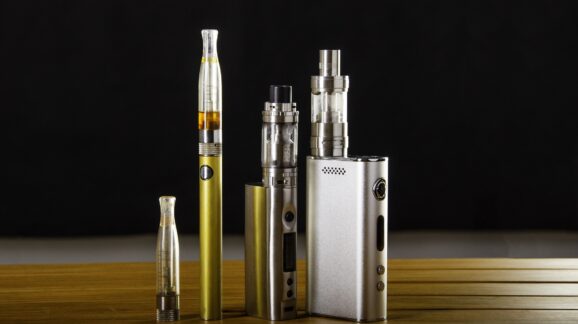FTC Hearing on Vaping Case Shows Antitrust at its Worst

Photo Credit: Getty
Earlier this week, the Federal Trade Commission (FTC) held a public hearing about a seemingly resolved antitrust case about the vaping market. In 2018, Altria bought a 35 percent minority stake in vape manufacturer Juul, and soon after took its own money-losing vaping products off the market. The FTC thought this timing was suspicious and sued on antitrust grounds in 2020. The case was resolved in February of this year, and the FTC lost.
As Jessica Melugin and I wrote recently in National Review, that would usually be the end of the matter. But this case was not tried in a standard court, as outlined in Article III of the U.S. Constitution. This case was tried in the FTC’s in-house court. Nearly 30 agencies maintain these administrative courts.
Unlike standard courts, which are an independent branch of government, agencies set the rules and procedures in their administrative courts. They also choose the judges and pay their salaries. As one would expect, agencies win more often in their own courts than they do in independent courts.
So it was a big deal when the FTC lost the Altria-Juul case in its own court. That’s also why the case didn’t end there. When the FTC does lose a case in its administrative court, the FTC commissioners can appeal the decision. Then they hold a hearing, and can overrule the administrative law judge if they choose. If they don’t win in court, they can say they won anyway. That can’t happen in a standard court.
That was what Monday’s hearing was about. It had a very pro forma feel; everyone already knows the FTC is going to award itself the win, and nothing anybody said at the hearing was likely to change that. Neither side brought up any new evidence or new facts, or any points of dispute that the administrative court hadn’t already considered. An undue amount of the allotted speaking time was spent discussing minutiae such as criteria for witness credibility, even after one of the attorneys pointed out that the judge had already considered those issues and factored them into the decision.
About the only suspense from this hearing is whether the FTC’s decision will be on a 5-0 vote or 3-2 vote. Commissioners Noah Phillips and Christine Wilson both asked pointed questions of the FTC’s counsel, and seemed open to voting to letting the court’s ruling stand.
This case is troubling on several levels. The obvious one is that the rule of law is not as strong as it should be in antitrust cases, due in part to the FTC’s option to use its own courts rather than independent courts. At the very least, Congress should require antitrust cases to be argued in independent Article III courts. The FTC shouldn’t get to give itself victories after losing a court case.
Only slightly less obvious is that hampering the legal vaping market makes black markets more appealing. If the larger public policy goal is to get people off of cigarettes, giving them fewer vaping alternatives is not helpful. This is potentially another instance of regulators being responsible for invisible coffins.
It also speaks to how vague antitrust law can be. Antitrust statutes are vague enough, and agencies have so much discretion, that many cases, including Altria-Juul, have a damned-if-you-do, damned-if-you-don’t quality.
Part of this case hinged on Altria withdrawing its own vaping products after its Juul investment. What if Altria had continued to offer its own vaping products, using Juul’s trade secrets? That could be grounds for a collusion case. If the wrong people don’t like you, you can get sued. That is quite a lesson for businesses contemplating mergers.
For more on the case, See Jessica Melugin’s and my piece in National Review.